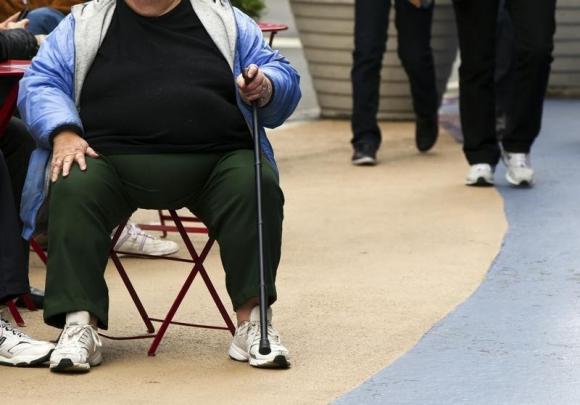(Reuters) – The rate of obesity continues to climb across the world’s most developed countries, with certain nations and groups of people such as women and the poor hit harder by the recent economic crisis, the OECD said on Tuesday.

While rates are rising as much as 3 percent a year in countries such as Australia, France, Mexico and Switzerland, they have been fairly stable in other countries such as the Unites States, Canada, Korea and Italy, the Organization for Economic Cooperation and Development said in report.
A review of available data showed that the global recession that struck in 2008 forced many families in harder-hit nations to cut back spending on food, especially healthier but often more expensive options such as fruits and vegetables, in favor of cheaper, less healthy options, it said.
Even in nations that fared better in the economic slowdown, certain groups of people, particularly women and those who are less educated and have lower incomes, were also more likely to be obese, OECD found.
“The economic crisis is likely to have contributed to further growth in obesity,” OECD researchers wrote.
Although the overall rate of obesity has slowed among more economically developed countries over the past five years, “the obesity epidemic has not stopped spreading,” they added.
The new report, based on a review of data from 10 OECD countries, will be presented on Wednesday at the European Congress on Obesity in Bulgaria.
Most of the OECD’s 34 members are wealthy countries such as the United States and European nations, although some emerging economies such as Mexico and Turkey are also included. The group does not include China, India or other bigger developing countries.
Rising obesity rates can also add economic burden as governments grapple with the costs of chronic conditions linked to obesity such as diabetes, heart disease and even cancer.
Current efforts aimed at preventing further weight gain, including using financial incentives to boost wellness or increasing basic health exams, are improving, OECD said.
“The economic crisis may have contributed to a further growth in obesity, but most governments need to do more to stop this rising tide,” OECD health policy analyst Michele Cecchini said in a statement.
Other policy efforts, such as stricter rules for advertising unhealthy foods to children, better food labeling and “carefully designed” food and beverage taxes could have an impact, the Paris-based organization said. One bright spot in the OECD’s review: although on average one in five children in developed countries is overweight, “more countries have managed to stabilize or even slightly reduce rates of child obesity than they have of adult obesity.”
A copy of the OECD report is online at: here
(Reporting by Susan Heavey; Editing by Sofina Mirza-Reid)





